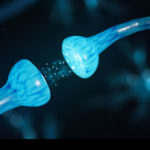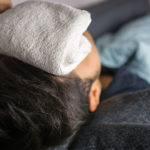Hunger Headaches

What Are Hunger Headaches?
Skipping meals, fasting, following a strict diet and even eating too much sugar can lead to hunger headaches or trigger headaches in people who suffer from migraines. Hunger headaches may occur when you’re shunning food for religious reasons (on Yom Kippur, for example, the Jewish day of atonement, or during Ramadan, the month in which Muslims fast from sunrise to sunset).
What Are The Symptoms Of Hunger Headaches?
Hunger headaches can be quite severe and may be accompanied by mild nausea. Other symptoms can include sweating, changes in mood, yawning, pallor and a craving for sweets.
What Are The Causes Hunger Headaches?
One of the causes of hunger headaches is a drop in blood sugar (hypoglycemia), the result of not taking in enough calories to meet the body’s needs. In addition to headache, hypoglycemia also can cause shakiness, irritability and fatigue. Another cause is the release of stress hormones in response to not getting enough to eat. (Stress hormones also rise if you are dehydrated or haven’t had enough sleep.)
Prevention Of Hunger Headaches
You should be able to avoid hunger headaches if you eat on a regular schedule and don’t skip meals. According to the Migraine Trust, small, frequent low-sugar meals are ideal to help avoid triggering migraine. Be sure to eat breakfast and try to have more than just a sandwich for lunch. If you get these headaches when you wake up, you may be able to prevent them by having some high-fiber breakfast cereal before you to go bed. Make sure you eat a high-quality, balanced diet with plenty of fresh vegetables and fruit, and avoid fast foods and immoderate consumption of sweets. Adding more protein to your diet may also help.
Conventional Treatment Of Hunger Headaches
Managing hunger headaches focuses on preventing them by attending to your food choices and eating regularly, reducing stress, and getting adequate rest.
What Does Dr. Weil Recommend For Hunger Headaches?
If you get hunger headaches, the solution is obvious – make sure you consume an adequate amount of food throughout the day. Don’t skip meals and eat wisely, as by following his anti-inflammatory diet.
Sources:
A. Mosek and A.D. Korczyn, “Yom Kippur headache,” Neurology, November 1, 1995, DOI:https://doi.org/10.1212/WNL.45.11.1953
A.Awada and J. Al Jumah, “The First of Ramadan Headache,” June 17, 2002, https://doi.org/10.1046/j.1526-4610.1999.39074














